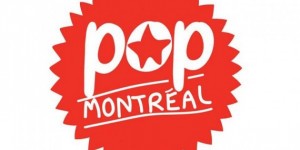“Quoi? Karkwa?”: An introduction for the rest of Canada
by AUX staff
September 22, 2010
A lil’ bit of Canadian rock history was written last Monday at Toronto’s Masonic Temple when indie rock band Karkwa won the 2010 Polaris prize. The Montreal based five piece is, of course, the first French act to win this honour. Amidst the screams and cheers of music fans, both present at the temple and online, questions arose: “Who?”, “Why?” And “WTF?!”. Let’s try to answer the first two.
Relatively unknown to the rest of Canada, Karkwa has actually been making a lot of noise in Quebec, and France, for the past 12 years. Years before they snuck their way onto the Polaris short list, the band got the attention of local media and music lovers by doing what they do best: playing live. It took five years before singer Louis-Jean Cormier and his bandmates recorded their first studio album; much of this time was spent on the road. Their first big tour was in Europe, right after they made it to the finals of a provincial battle of the bands called Cégeps en spectacle.
While their celebrated album Les Chemins de verre has been compared to both Coldplay and Radiohead’s soundscapes, their first album, Le Pensionnat des établis, launched in 2003, was a daring mix of pop, rock… and funk. “Daring” because, let’s face it, how often do five white kids from Québec get rave reviews from music critics when mixing pop, rock, funk and French?!
Even though their victory was welcomed with amazement, especially on Twitter, the Karkwa guys have been lifting golden statues and/or cheques over their heads for years. Their third album, Le Volume du vent, got them four Félix* in 2008, among them: album and band of the year. In 2009, this same album helped them win the best video and best show honours.
While these feats look good on a bio, or a Wikipedia page, they are easily explainable when you take each piece of the band apart. While great together, the musicians behind Karkwa are highly talented artists in their own right too. For instance, percussionist Julien Sago has made a name for himself due to his involvement with the post-rock band Pawa Up First. On the other side of the studio, singer Louis-Jean Cormier recently produced Marie-Pierre Arthur’s album, a folk singer the ROC recently discovered on a new Buck 65 track. Speaking of which…
While the media is making a big deal of their mother tongue these days (while somehow overlooking the band’s longevity, musicianship and past honours), Karkwa could arguably be one of the most French singing anglophile bands in Quebec. Really! Here’s why…
Top three reasons Karkwa could be the most anglophile French band around in Quebec these days:
#3: Among the musical influences listed on their MySpace (I never said this top three would be highly scientific, ya know), you’ll find “Animal Collective”, “Plants and Animals” and “Wilco” among others. The only French-speaking musician on this list is country goddess Mara Tremblay.
#2: On Le Volume du vent, Karkwa enlisted the help of Elizabeth Powell on the single “Échapper Au Sort”. The Land Of Talk’s front woman would later sing four Karkwa songs translated in English by radio host and folk singer Jim Corcoran on a web show produced by Bande à Part.
#1: In 2008, Karkwa joined forces with Patrick Watson (another collaborator to Le Volume du vent… and another Polaris winner as well– is there a pattern here?) to form Karkwatson, a side project that mixed and reinvented both of their repertoires. Karkwatson played only a couple of shows before disbanding.
André Péloquin was a member of the 2010 Polaris Music Prize Grand Jury.





